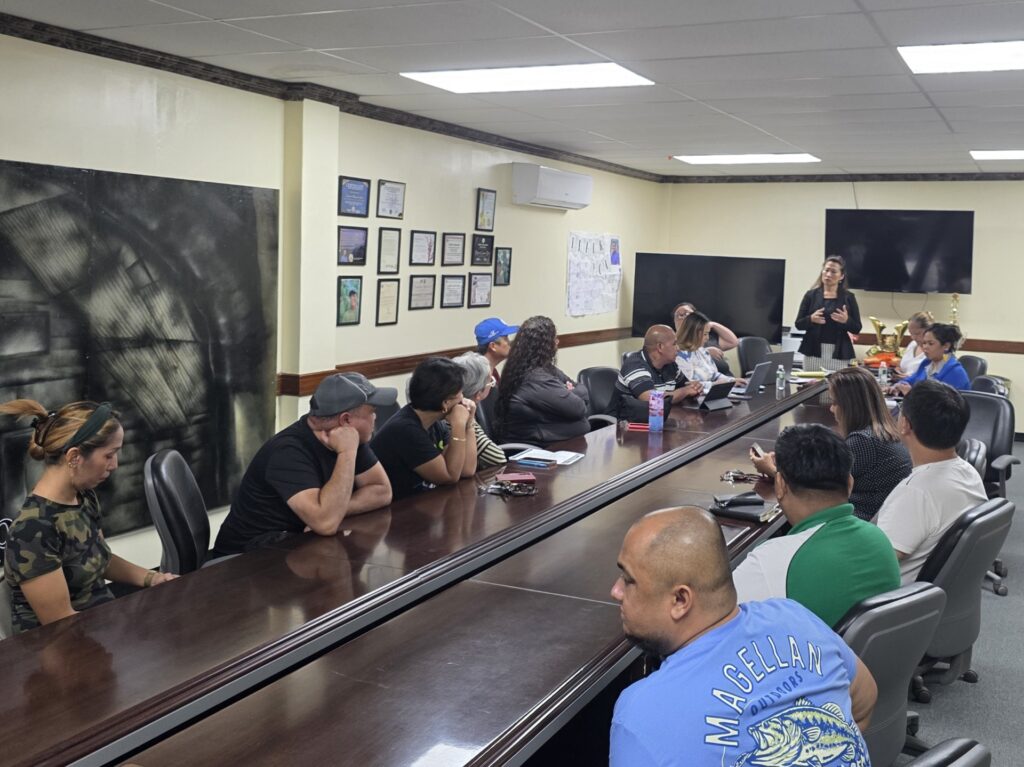
On Aug. 19, 2025, the Liberation Day Committee with their legal counsel, Janet King, met with the vendors to discuss their concerns.
Photo by Bryan Manabat
IN response to vendors’ concerns, the Liberation Day Committee clarified that the 10% deducted from their gross sales at the carnival grounds was a “participation fee.” Vendors, however, are challenging the committee’s authority to impose the deduction.
Attorney Janet King, representing the committee, explained that vendor payments took two forms:
Booth application fees totaling $16,600, paid up front to secure space and cover setup costs such as utilities, booth assignments, and token redemption.
A 10% vendor participation fee totaling $26,336, deducted from approximately $270,000 in gross vendor sales processed through the official token system.
“These funds supported event expenses including security, logistics, power, and entertainment,” King said. “Together, vendor payments amounted to $42,936, all of which supported the operation of the 79th Liberation Day festivities. These were participation fees, not rent or public land revenues.”
King added that the committee also paid Business Gross Revenue Tax or BGRT on the total sales amount.
At a recent meeting between the LDC and vendors, Ben Ki operator and former Department of Public Lands Secretary Marianne Teregeyo, citing a 2018 Supreme Court ruling (Teregeyo v. San Nicolas), argued that the 10% deduction amounted to “unconstitutional” public land revenue and is therefore not allowable.
King disagreed: “Courts and long-standing practice consistently interpret ‘revenue from public lands’ to mean the rents, leases, and concession fees that the government itself collects as landlord or lessor — not the private earnings of vendors or businesses. Ms. Teregeyo’s interpretation would force every food stall or small business on public land to turn over all receipts to the MPLT. That is not how Article XI works. The LDC is not the government, not a landlord, and not collecting rent. It collected only a participation fee tied directly to event costs.”
Vendors also voiced frustrations about poor communication and disorganization. They cited delayed token booth openings, inconsistent power supply, discourteous event staff, limited parking, insufficient entertainment, and the absence of a designated on-site contact person. They also called for a full accounting of all funds received and spent during the festivities.
Acknowledging the concerns, LDC Chairwoman Frances Santos said the committee takes them seriously.
“The Liberation Day festivities are a massive community undertaking, coordinated by a volunteer board with limited resources,” Santos said. “While we worked hard to deliver a safe and celebratory event, we recognize there were areas that can be improved. One helpful suggestion was to include a vendor representative on the committee. We welcome that idea and will explore ways to make it part of our planning process.”
Santos emphasized that Liberation Day is meant to unite the community. “Vendors are an important part of that tradition,” she said. “We want them to feel supported and valued. Their input helps us identify areas to improve and ensures future celebrations will be even stronger and more inclusive.”
King also clarified the committee’s finances. She said the LDC received only $50,000 in direct government support, provided by the Governor’s Office.
“Saipan Local Law 24-4 appropriated $150,000 to the Saipan Mayor’s Office for personnel and operations, but none of that funding went to the LDC,” King said. “The LDC’s operating funds consisted of the $50,000 contribution, vendor application fees, the 10% participation fee, and community sponsorships and donations — all of which were used to underwrite the costs of staging the 79th Liberation Day festivities.”











